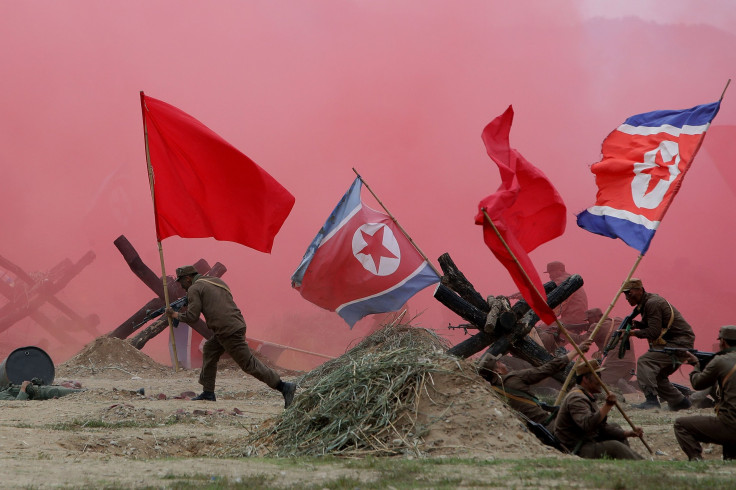North Korea Wants US To End Korean War: America’s Reason To Wait

A major newspaper in North Korea demanded Friday that the United States declare the end of the 1950-53 Korean War ahead of a fourth visit from Secretary of State Mike Pompeo to Pyongyang.
"There is no reason to ignore a declaration to end the war. It is a preliminary and essential process to pave the ground for detente and permanent peace on the Korean Peninsula," a commentary read in Rodong Sinmun, the official newspaper of the Central Committee of the Workers' Party of North Korea.
“The U.S. should implement phased and simultaneous measures, like the end-of-war declaration, to build mutual trust and make a breakthrough in the security of the world," said the paper, Yonhap News reported.
The outlet also reminded the U.S. that North and South Korean people living in the West had time and again rallied for the end of war declaration.
The sentiments of the paper were echoed by North Korean external propaganda website Meari, adding it was not possible to talk about peace between the two halves of the Korean peninsula without a formal end to the armistice, which is still a reminder for people that the Korean War never ended.
“As long as the armistice remains intact, even a small accidental event could immediately escalate into a crisis. If so, the North's relations with the South and the U.S. could revert to the past phase of confrontation," said the website.
So why is the U.S. holding off on declaring a formal end to the Korean War?
According to the New York Times, North Korea and the U.S. were stuck in a classic chicken and egg situation, where one was demanding the other take the first step before getting something in return.
In this case, the U.S. officials suspected North Korea’s push for an end-of-war declaration spurned from their intent to undermine the reason behind maintaining American troops in the South Korean border, which is important to America’s strategy in Asia. Hence, they want to wait for the North to agree to completely relinquish its nuclear weapons before making such a declaration.
However, when Pompeo visited North Korea last month to talk about denuclearization of their nation, Pyongyang made it clear they would agree to a deal only when the U.S. agreed to an end-of-war declaration.
Ever since the first summit between President Donald Trump and North Korean leader Kim Jong Un in Singapore, Pompeo has struggled to divulge details about how his team planned on fulfilling the promise of “complete denuclearization of the Korean Peninsula” the president made through the historic meeting.
On Thursday, during the press briefing, Pompeo told the reporters the administration was “continuing to make progress and hoping that we can make a big step here before too long.”
However, even then Pompeo chose not to go into details, vaguely adding, “We’re continuing to engage in conversation with them about a path forward to a brighter future for the North Koreans.”
South Korean President Moon Jae-in, who is scheduled to meet Kim next month during their third summit, also supported North’s demand for the end-of-war declaration.
However, political analysts opined that since different countries were operating with their own priorities, it would be really difficult for the superpowers to arrive at a consensus on which agenda to accomplish first.
“You have South Korea moving so quickly on these projects to push for reconciliation with North Korea, and in Washington you have people pushing for denuclearization before anything else happens,” Jean H. Lee, director of the Wilson Center’s center for Korean history and public policy, told the New York Times. “They have very different end games and very different time frames. It’s very problematic.”
© Copyright IBTimes 2025. All rights reserved.






















